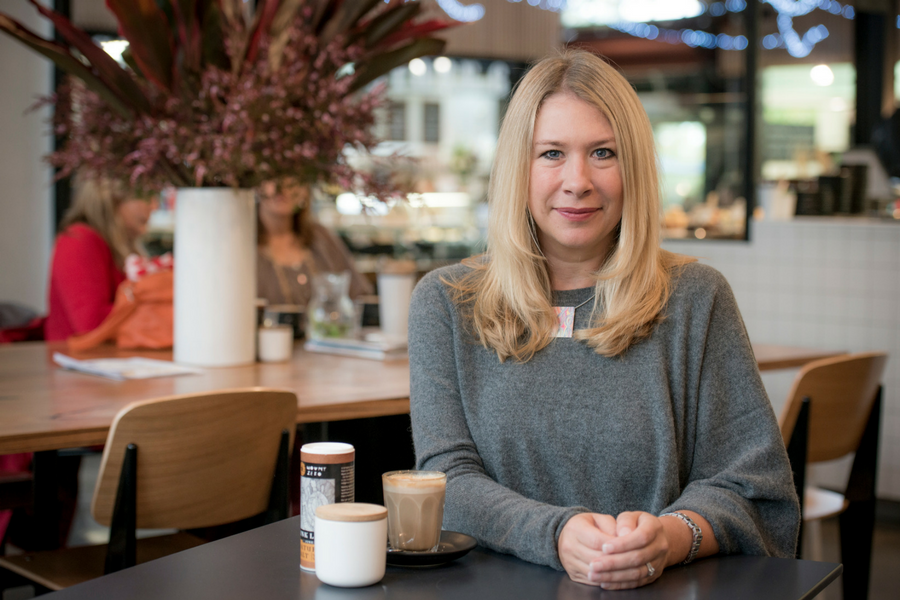Sitting back and thinking about how many greyed avocados, overcooked snags and ambiguous-tasting milk each Australian has thrown away each year is boggling.
Applying hard numbers to that thought, Australians discard up to twenty percent of the food that they purchase, with roughly $8 billion dollars of edible food tossed in the trash each year, according to data from FoodWise.
Working to help reduce this number and eventually tackle the issue of food waste globally is Melbourne-based startup Yume.
Through an online ecommerce platform, Yume connects food suppliers working across manufacturing, wholesale and distribution with quantities of surplus food to Australian businesses and restaurants.
Buyers are encouraged to purchase Yume’s wholesale products thanks to their discounted rate, a process which looks to ultimately reduce the amount of quality surplus food that ends up wasted in a landfill.
Founded by Katy Barfield, Yume emerged following Barfield’s experience within the food industry.
Beginning as a bar owner, Barfield said she was surprised when she discovered the high volume of food wastage her tiny establishment off-put.
“If you think about that and the 30,000 plus restaurants around Australia that must be wasting food, the numbers are tremendous,” she said.
Barfield then went on to found Second Bite, an organisation working to redistribute surplus food to people in need across Australia.
Despite achieving progress, she said the organisation ran into a number of challenges, predominantly dealing with visibility.
“Often we’d know about the food at the last minute, and we had a hard time getting that in time to different places. Businesses would either contact us last minute or the food would sit on the warehouse floor and end up being wasted,” Barfield said.
Searching for a method to help be visible to businesses to reduce food wastage, Barfield said she looked past traditional surplus food stores and towards technology.
“One of the frustrations with having a bricks-and-mortar store was that we needed to come up with a more efficient way to connect with consumers. We needed to find a way to market a product when we couldn’t do it through a physical channel, so we looked to technology for that,” she said.
Off the back of her initiatives at Second Bite, Yume provided a way for Barfield to connect surplus food to people in need while additionally reducing food wastage by allowing businesses to purchase bulk amounts of quality surplus products.
Through the online platform, Yume will help connect its food suppliers to charities directly including Food Bank, OzHarvest Fare Share, and Second Bite too in order to donate food.
Alternatively, the platform offers a way for food suppliers to sell their surplus goods to buyers, which Barfieldsaid is often the more popular choice since the suppliers are trying to reduce their losses.
Barfield explained that traditionally, distributors have contacts with certain food chains and services, but these places are not contracted nor obliged to buy anything.
The result is often a large portion of leftover quality food, which the distributor typically struggle to or cannot sell, as it undercuts their standard price margins.
“We did some work done of the addressable market sizing, which showed that between 400,000 to 600,000 quality, edible surplus food products are available each year here that could be rescued,” said Barfield.
With food suppliers often holding onto large portions of decent food, Barfield said that Yume often receives huge amounts of quantity, which translates to massive purchases.
Interestingly, the founder said that seafood, particularly salmon – an admittedly delicious fish – is amongst the most popular surplus foods.
“We’ve had instances of two and a half tonnes of Norwegian Salmon purchased off the platform,” she said.
To ensure a high standard of quality, Yume will only work with suppliers that have a series of food safety certifications and licences, as well as a Hazard Analysis and Critical Control Points certificate.
“They’re all recognised brands like PacWest, and we’re only working with those we know in Australia at the moment,” Barfield said.
In addition to seafood, Yume sells food products across fruits and vegetables, poultry, snacks, dry goods and dairy.
Operating like a traditional ecommerce platform, buyers are able to hop onto the site, see item information and images, add items to a cart and purchase food in wholesale orders.
Differently from other mainstream food sale platforms, however, Yume clearly displays the available quantity, the shelf life and minimum order of each product.
Most products also feature their supplier name of branding, although Barfield said suppliers can choose to “white-label” their product, meaning a buyer can’t see what business the item originated from.
Uploading products, donating and purchasing items is free, with Yume only taking a ten percent cut on each standard commercial sale.
Since launch, Barfield said the startup has managed to raise $2.6 million round of impact funding led by Impact Generation Partners, following a smaller seed funding amount close to its inception.
In line with her goals to knock down “global food wastage”, Barfield said the funding will be used to help expand the startup’s operations across Australia, as international expansion sits waiting down the line.
Image: Katy Barfield. Source: Supplied.




















Trending
Daily startup news and insights, delivered to your inbox.